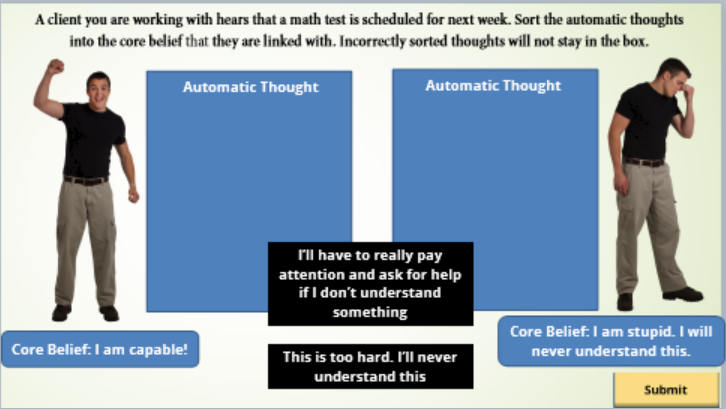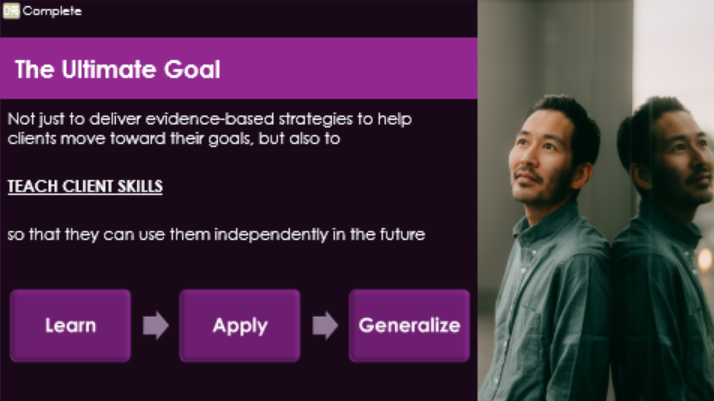Web-Based CBT Training for Individuals
The Penn Collaborative’s web-based training (WBT) in Cognitive Behavioral Therapy offers the equivalent of a graduate-level intensive course in CBT from internationally-recognized experts, accessible asynchronously from anywhere in the world. For organizations who have already participated in the Beck Community Initiative, the WBT can help to expand capacity beyond the initial training cohort by providing additional clinicians with the knowledge they need to join internal consultation groups and seek certification. For organizations or individuals just getting started with CBT implementation, the WBT can provide the necessary building blocks for clinicians to begin to practice CBT with people seeking care.
Ensuring and expanding access to quality CBT training for mental health providers is a cornerstone of our mission so we are pleased to announce that the BCI's renowned and researched WBT is now available for a nominal fee to clinicians outside of BCI-affiliated programs! Click here to find more information and register today. (Clinicians & supervisors connected to BCI-affiliated programs continue to have free access to this intensive training & associated resources through our partnership with DBHIDS/CBH - interested individuals at those programs should connect with their internal CBT liaison or supervisor for more information.)
This comprehensive, expert-led training starts with fundamentals and builds up to advanced CBT techniques. Participants who complete the program and pass the final knowledge check are eligible to receive 22 CEUs from the APA. Our Cognitive Case Conceptualization-driven approach champions flexibility and creativity, allowing you to tailor therapy to each unique individual. This powerful method will enable you to deeply understand and connect with your clients, guiding your selection of interventions to facilitate meaningful change.
The empirically-established advantages of Penn Collaborative’s web-based training:
- WBT offers clinicians access to training in transdiagnostic case conceptualization–driven cognitive behavioral therapy (CBT), regardless of their location;
- On completion, learners demonstrate levels of CBT competency similar to clinicians in randomized controlled trials - almost unprecedented in the empirical literature;
- WBT is as effective as in-person training in building knowledge and competency but requires fewer resources (e.g., direct cost, lost billable hours, travel);
- WBT is equally highly effective for clinicians in both traditional (i.e., outpatient) and non-traditional levels of care
- WBT can be accessed repeatedly, supporting sustainability and consistency in training standards; and
- Available consultation with implementation experts increases the likelihood that this evidence-based practice will be successfully integrated and sustained over time.
Our web-based training in CBT can be augmented with additional supports including:
- Supplemental tailored live training (in-person, webinar) adapted to the site's primary client population or level of care
- Group consultation facilitated in person or via video conferencing
- Assessment and certification of competence based on gold-standard measure of CBT skill (the Cognitive Therapy Rating Scale)
- Consultation to support implementation readiness and sustainability

|

|
Interested in learning more about the WBT? Contact us here!
Back to Top
